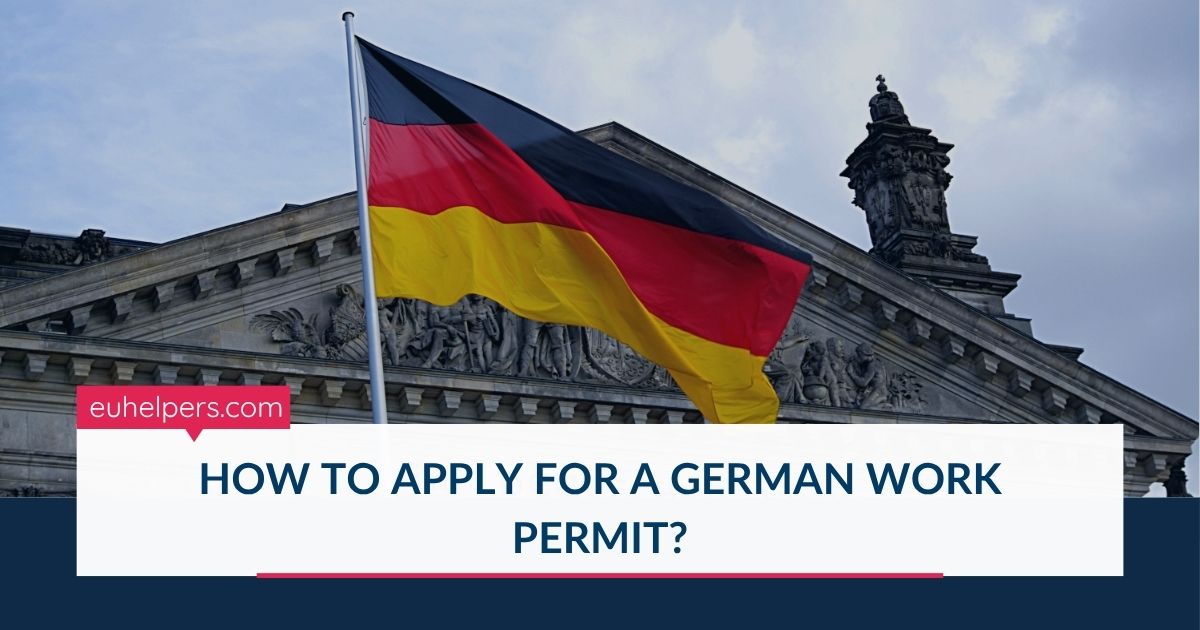Germany is a leading destination for skilled professionals seeking employment opportunities in Europe. If you're a non-EU citizen aiming to work in Germany, you'll need to follow a structured process to obtain a work visa and, subsequently, a residence permit.
Step 1: Secure a Job Offer from a German Employer
The first and most critical step in the process is obtaining a valid job offer from a German employer.
-
The position should ideally be in a sector where there is a high demand for skilled workers, such as IT, engineering, healthcare, or skilled trades.
-
Your employment contract or letter of intent will serve as the foundation for your work visa application.
Step 2: Apply for a German Work Visa
Once you have a job offer, the next step is to apply for a work visa at the German embassy or consulate in your home country.
Gather the Required Documents
You will need the following documents for your visa application:
-
A completed visa application form
-
A valid passport
-
Two recent passport-sized photos
-
Employment contract or official letter of intent from the German employer
-
Proof of professional qualifications, such as diplomas or certificates
-
Proof of financial means to support yourself during your stay
-
Health insurance coverage
-
A resume (CV) and cover letter
-
Police clearance certificate, if required
-
Authorization from the German Federal Employment Agency (BA), if necessary
Schedule an Appointment
Book an appointment with the appropriate German diplomatic mission in your region. It’s advisable to do this well in advance, as appointment slots may fill up quickly.
Submit Your Application
Attend your scheduled appointment and:
-
Submit all required documents
-
Pay the applicable visa processing fee
-
Attend a short interview, if required
Visa Decision
After reviewing your application, the embassy or consulate will inform you of the decision. If approved, you will receive your national visa allowing you to enter Germany for employment purposes.
Step 3: Apply for a Residence Permit in Germany
Once you arrive in Germany with your work visa, you must complete additional steps to legalize your long-term stay:
Register Your Address
Within two weeks of arrival, you must register your residence at the local registration office (Einwohnermeldeamt) in your city or town.
Apply for a Residence Permit
You’ll then need to apply for a residence permit for employment purposes at the local immigration office (Ausländerbehörde).
Required Documents May Include:
-
Proof of registered address in Germany
-
Valid passport and work visa
-
Employment contract
-
Proof of health insurance
-
Proof of financial means or salary
-
Proof of accommodation
-
Additional documents as requested by local authorities
Step 4: Additional Considerations
Job-Specific Requirements
Some jobs may require you to meet additional criteria, such as passing a language proficiency test or obtaining formal recognition of your foreign qualifications.
EU Blue Card
If your job offer meets specific salary and skill thresholds, you may be eligible for the EU Blue Card, which offers extended work and residency rights in Germany and other EU countries.
Recognition of Qualifications
In many cases, your foreign degree or vocational training must be officially recognized in Germany. You can check recognition requirements through platforms like anabin or contact German recognition authorities.
Language Skills
While not always mandatory for visa approval, German language proficiency can significantly improve your job prospects, workplace integration, and long-term settlement in Germany.
Keep in mind that visa and permit requirements can vary depending on your nationality, job type, and qualifications. Always consult the official website of the German embassy or consulate in your country or visit the German Federal Foreign Office (Auswärtiges Amt) website for the most accurate and updated information.
By following the correct procedures and preparing thoroughly, you can successfully obtain a German work visa and start your professional journey in one of Europe’s most dynamic economies.

